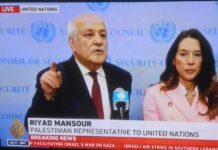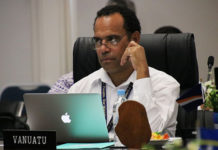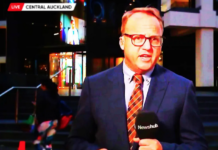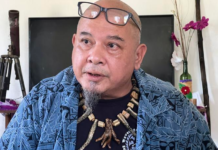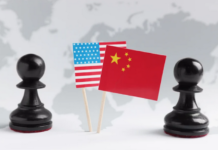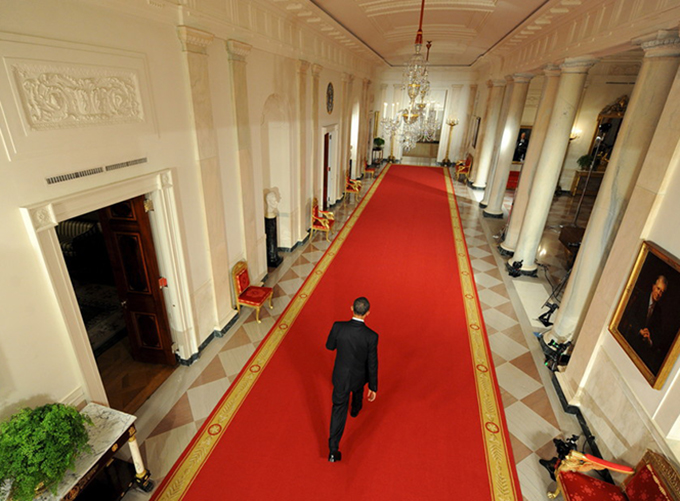
By Professor Thomas Clark
The grace. The elegance. The deftness of touch. The quick intelligence. The soaring rhetoric. The unlimited aspirations. The hope of a better life for all.
Though Barack Obama’s legacy is rather lesser than some might have hoped for when he was inaugurated president of the United States in 2009, in him the world has lost the leadership of a gentle soul, a humble man of immense quality and kindness.
And now, these qualities will be replaced with bitter self-interest and vulgarity.
Even without the contrast of Donald Trump, Obama’s dignified bearing, even his very existence, was an inspiration. He and his wife Michelle were an unrivalled illustration of dignity in public office – and more than that, he has clearly left a profound mark on his country.
In his valedictory address in Chicago, Obama was as always breathtakingly optimistic, both about what has been achieved and in his estimation of America’s potential to achieve greater things yet:
If I’d told you eight years ago that America would reverse a great recession, reboot our auto industry, and unleash the longest stretch of job creation in our history; if I’d told you that we would open up a new chapter with the Cuban people, shut down Iran’s nuclear weapons program without firing a shot, take out the mastermind of 9/11; if I’d told you that we would win marriage equality and secure the right to health insurance for another 20m of our fellow citizens – if I’d told you all that, you might have said our sights were set a little too high.
To watch the incoming administration crumble this legacy into rubble will be unbearably painful. But it also pays to ask why this hugely gifted politician didn’t accomplish more – and why he won’t leave a more durable legacy.
Back from the brink
The task Obama faced after his inauguration was monumental. The 2008 financial crisis had threatened to engulf the US in a recession as deep and lasting as the Great Depression in the 1930s; the new president inherited an unemployment rate of 7.8 percent, which by October 2009 had risen to 10 percent.
The 2009 American Recovery and Reinvestment Act delivered an $831 billion stimulus package, pumping money into infrastructure, education, health, energy, federal tax incentives, and expansion of unemployment benefits and welfare provisions.
According to the Council of Economic Advisers, the US economy added jobs for 74 consecutive months and reached its pre-recession average by mid-2015, falling to 4.6 percent by November 2016. Non-farm employment exceeded its pre-recession peak by 6.7m, with the automobile industry adding 700,000 jobs.
This was a stunning turnaround, but millions of casualties of the financial crisis have still not recovered. There remains a lingering sense that the financial institutions that caused the crisis were never made to pay for it.
Then there was the battle to achieve affordable universal health care, Obama’s signal social reform. This was a titanic fight that left him in an intractable conflict with the Republican Party in Congress for the whole of his two terms in office.
The Affordable Care Act, now widely known as “Obamacare”, requires all Americans to purchase a private health plan, secure an exemption, or pay a tax penalty. Those who could not afford health care qualified for Medicare, Medicaid, the Children’s Health Insurance Program, or assistance in the form of tax credits.
Health care was ultimately extended to all citizens. But the system’s troubled implementation and the political guerrilla war waged against it before and since its introduction demonstrates the just how unprepared US for any comprehensive form of social provision.
Bad examples
Obama drew a line under the US’s military adventurism in the Middle East, finally withdrawing US forces from Iraq in December 2011; he also declared an end to the war in Afghanistan in November 2014. But he was unable to head off the horrors of the Syrian civil war, first setting out a “red line” that Bashar al-Assad’s regime could not cross without consequences and then declining to act when it did.
While he avoided putting American “boots on the ground” on a grand scale, he presided over actions by special forces, including the mission that killed Osama bin Laden. He also continued to rain bombs on Muslim countries, and his apparent penchant for drone strikes has arguably set a dangerous precedent.
Obama also maintained a quiet but determined commitment to protect the environment, working hard to replace fossil fuels with renewables. And while the world’s developing economies rebuffed a global climate agreement at Copenhagen in 2009, they ultimately committed to a rapid reduction in emissions at the 2015 Paris summit.
The sense of optimism was capped by Obama’s emmissions reduction agreement with President Xi of China.
But once again, by using his executive powers to circumvent an intransigent Republican congress, Obama laid this and other key achievements open to destruction by future presidents – and first in line is Donald Trump.
The fate of the US economy now lies in the hands of a man who claims to be a serial entrepreneur, but who could just as well be described as a serial bankrupt. The new Republican-controlled Congress is already preparing to dismantle Obamacare, but needs to ensure millions of Americans who now have access to health care don’t suddenly lose it.
In foreign affairs and military intervention, Obama’s successor promises to be highly unpredictable. He might be most dangerous of all when it comes to climate change and environmental protection, although international support for serious global measures to curb emissions has probably never been higher.
System flaws
Obama also failed to achieve some of his fundamental objectives, but many of these failures reflect fundamental flaws in the American system that are beyond any one president’s power to repair.
Above all, his hopes for a new era in race relations were cruelly dashed. Black Americans were still being lethally victimised as his presidency drew to a close, with police brutality perhaps a more incendiary issue than ever. Throughout it all, he remained dignified as ever; his plaintive rendition of Amazing Grace at a church in Charleston, South Carolina where eight worshippers and a pastor were brutally killed marked the end of his effort not to be portrayed as a black president.
Tragically, his efforts to constrain gun violence in the US failed to overcome the onslaught of political opposition to responsible control, and a constant patter of gunfire punctuated his presidency.
At Sandy Hook elementary school, 20 young children and six adults perished at the hands of a single shooter. The event brought Obama to tears: “Every time I think about those kids, it gets me mad. And by the way, it happens on the streets of Chicago every day.”
By his own admission, Obama failed to overcome the intense partisanship of American politics and society. The disfigurement of US democracy continues, undermining the possibility of stable government. Tens of millions of Americans don’t participate in the democratic process at all, and the political agenda is still disproportionately shaped by a wealthy corporate elite.
We can only hope that while the traumatic 2016 election may have left America’s more idealistic political forces chastened, they are not broken.
Thomas Clark is professor of business at the University of Sydney Technology. This article is published from The Conversation under a Creative Commons licence.





